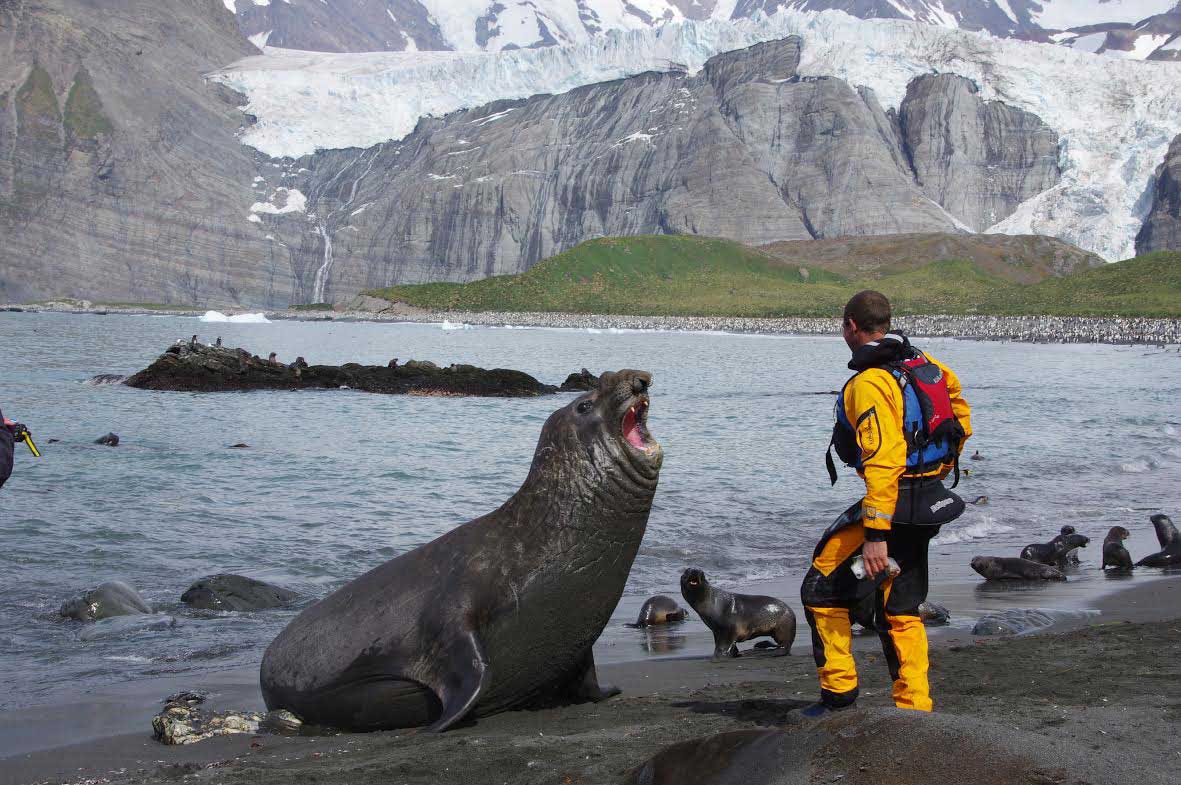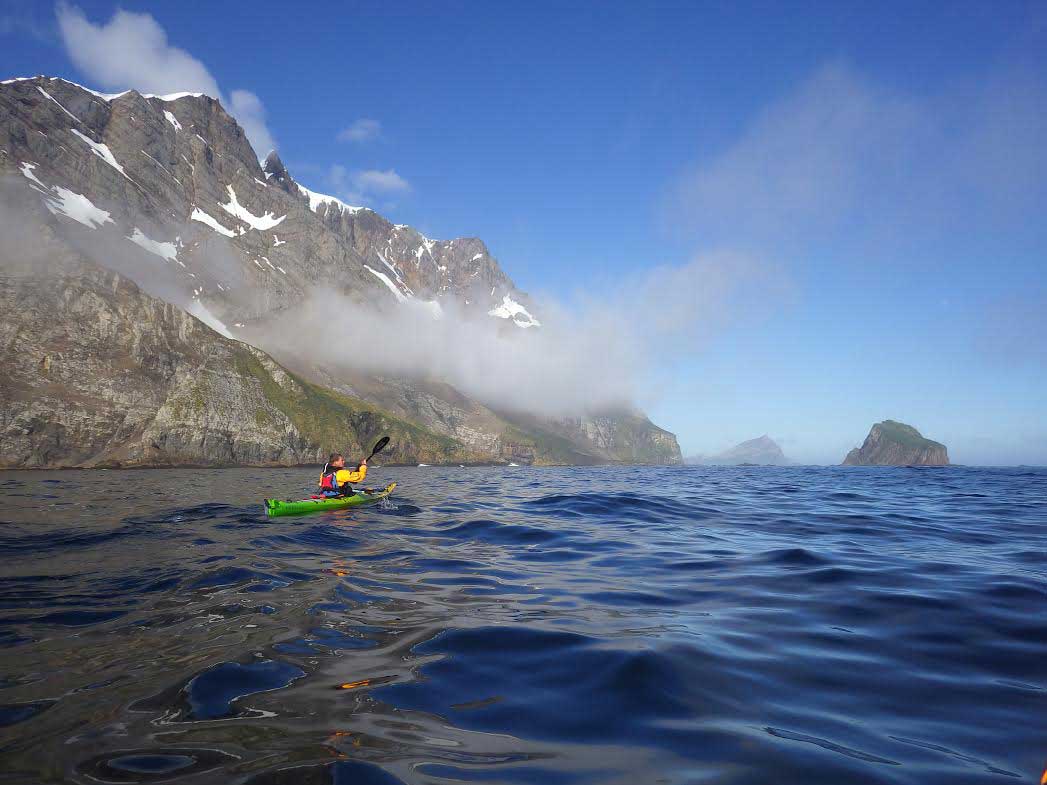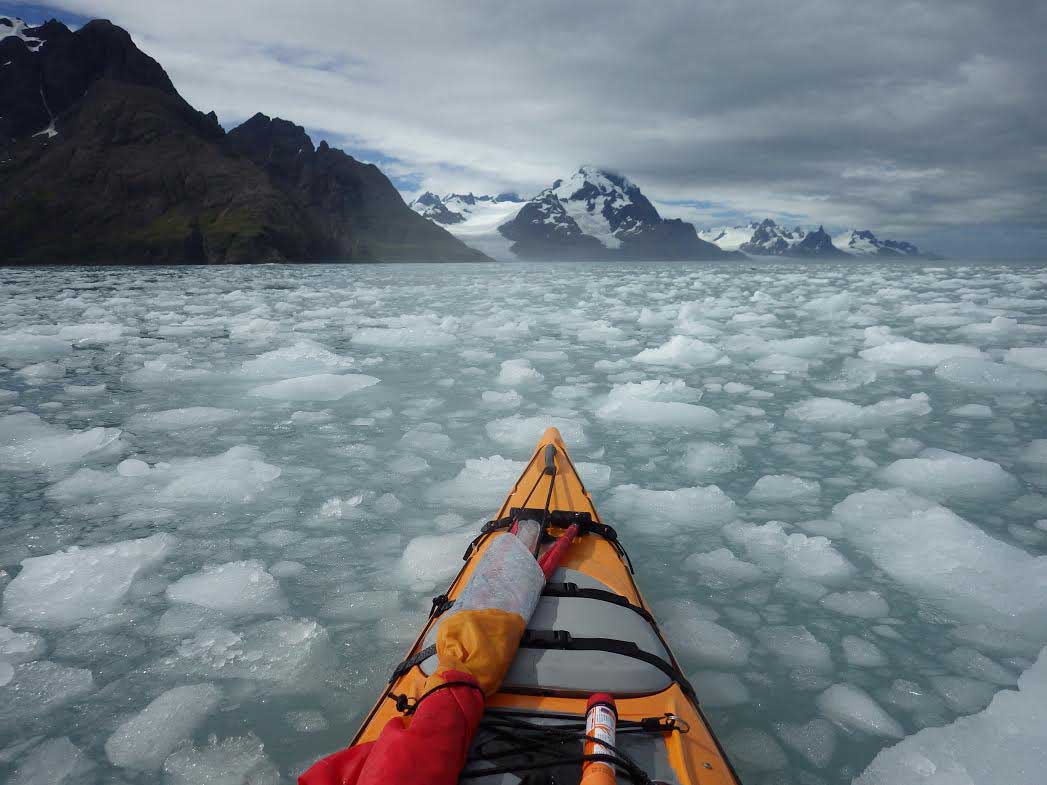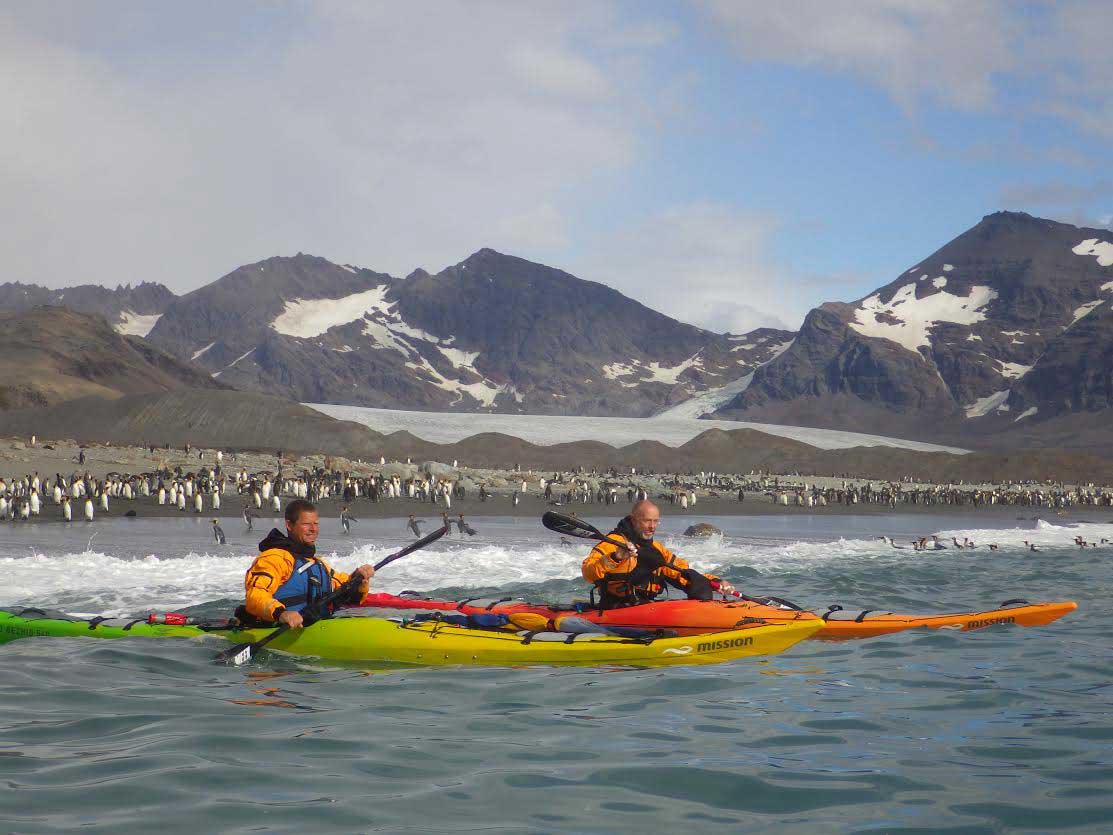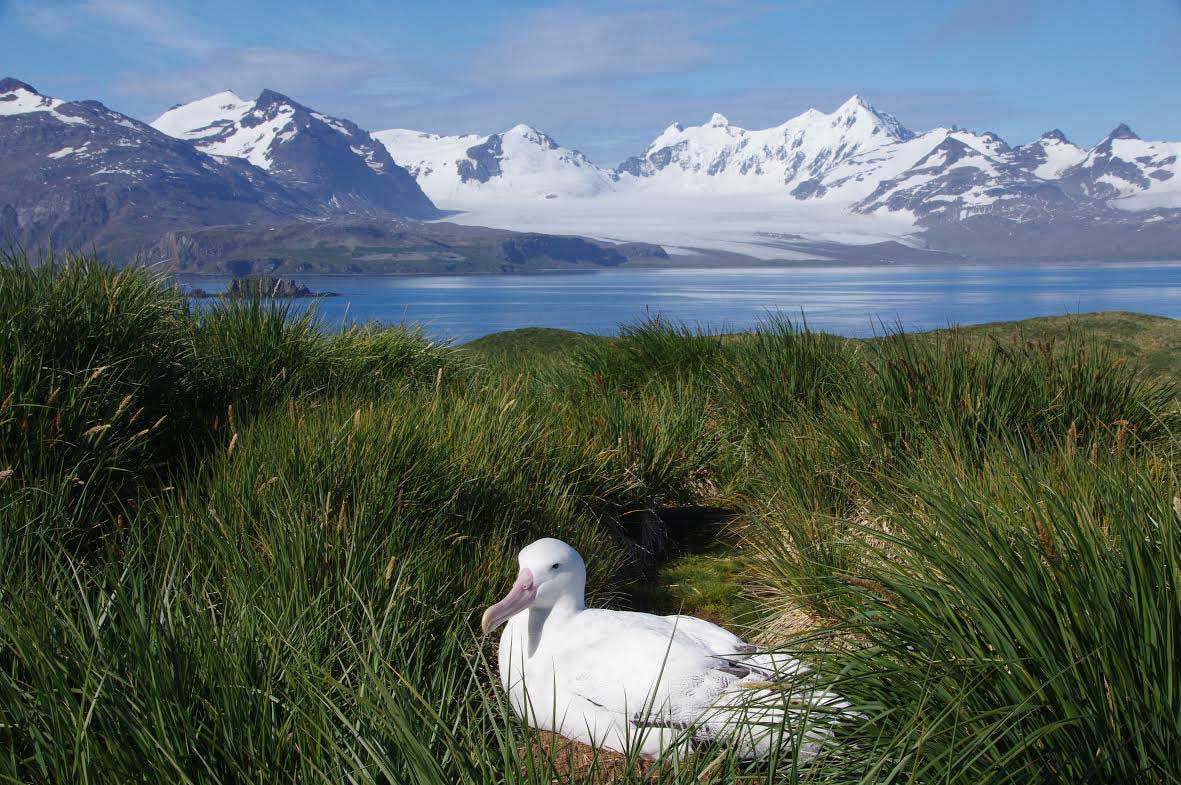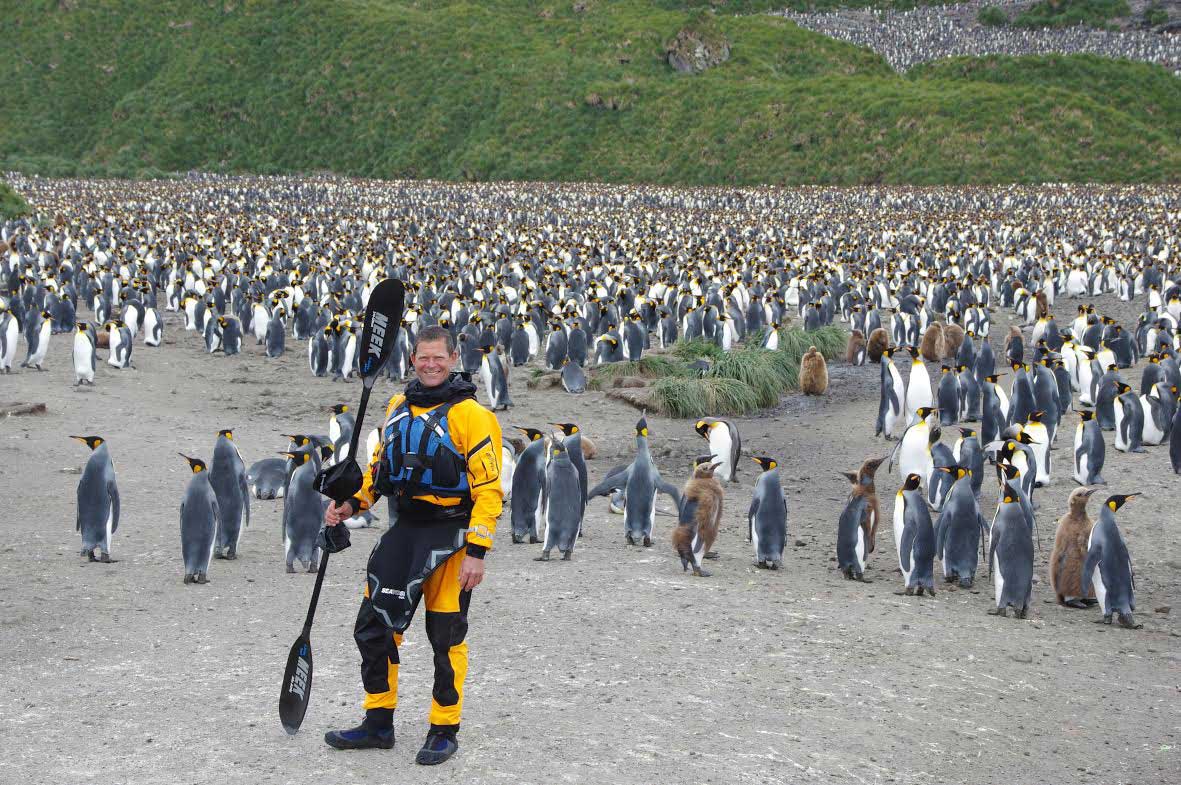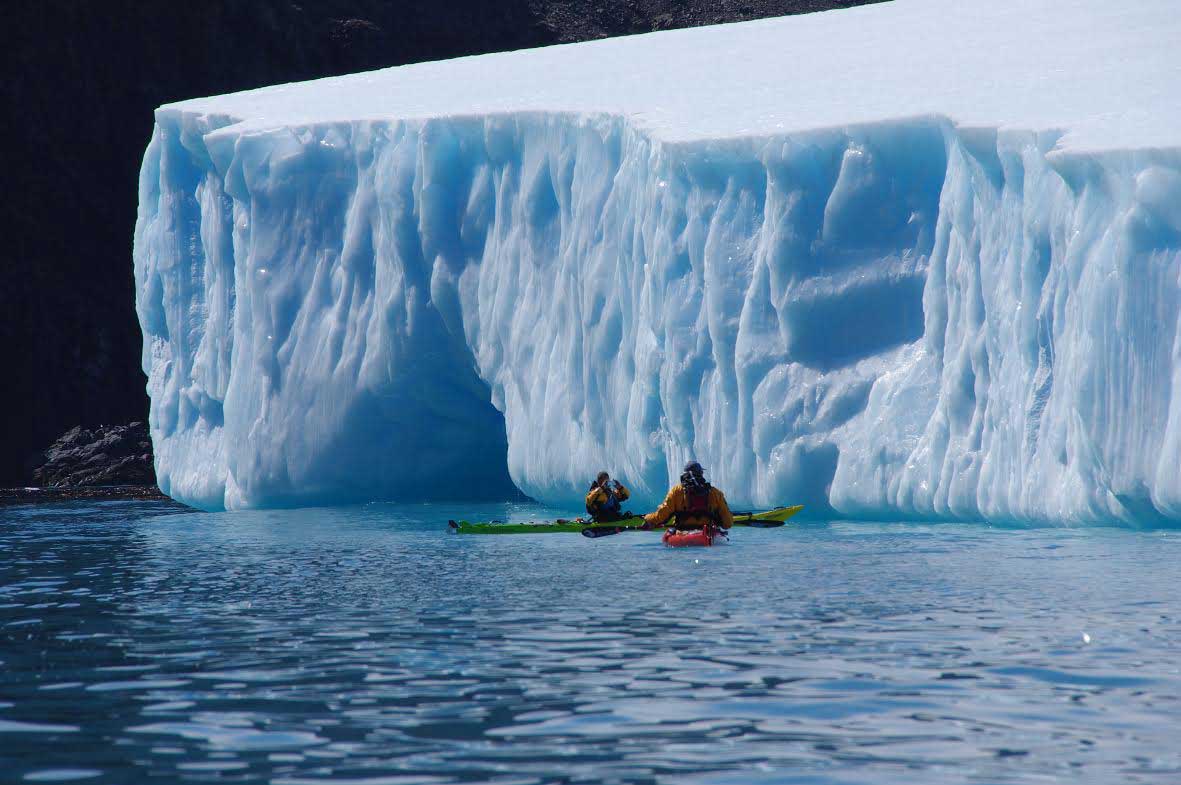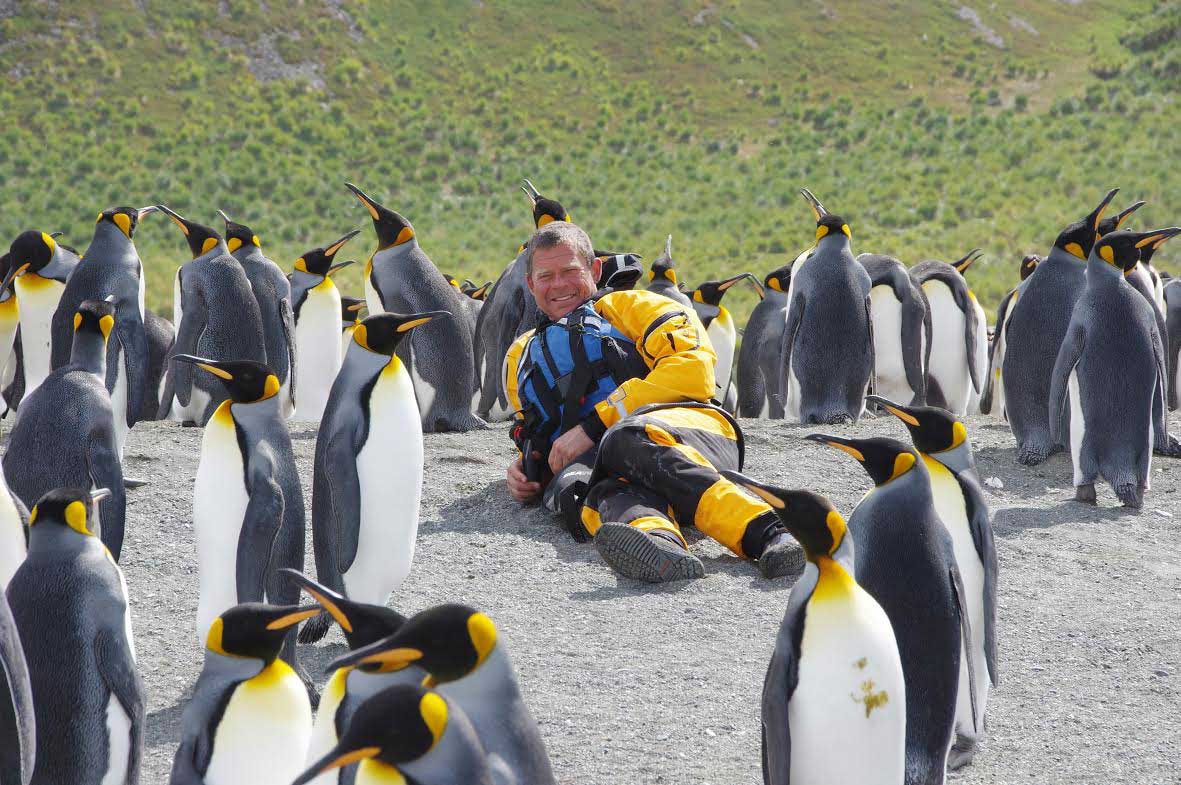Surf Coast adventurers John Jacoby and Chris Porter tell EMILY IANNELLO about the epic kayak journey around South Georgia Island, on the doorstep of Antarctica.
Pictures: Andrew Maffett
A boys’ trip to Bali or a party at the pub were never going to be enough when John Jacoby turned 50 this year.
Instead, the Jan Juc athlete marked his milestone by paddling sea kayaks with three mates on a marathon adventure around remote, inhospitable South Georgia Island.
“I considered it a pretty good birthday present,” John laughs.
The feat, in the frigid South Atlantic Ocean just 800km from Antarctica, won Jacoby and his team Australian Geographic Society’s Adventurers of the Year Award.
It was the first joint trip for the team, which also included Anglesea’s Chris Porter, Perth’s Andrew Maffett and Tasmanian Jim Bucirde.
An international adventure-racing legend, Jacoby also won the Keys to the City of Melbourne in 1987 winning his third World Marathon Kayak Champion title. He has since won a fourth championship.
Jacoby has completed 30 major international adventure races in 16 countries and was the first Australian New Zealand’s coveted Coast to Coast title. Porter, founder of surf school Go Ride A Wave, has completed numerous sea kayaking expeditions in Australia, New Zealand, North America and Southern Africa.
Jacoby describes the 500km circumnavigation of South Georgia Island as “one of the best trips” of his career.
In February and March the men sailed 1400km across the South Atlantic to reach the glaciated, mountainous island, known as the Gateway to Antarctica.
“The planning was more difficult than the execution,” John laughs.
“We had to prove we had our own search and rescue capability – ours was the yacht we sailed down on. Sometimes it could be 500m away, other times it was 30km away.”
Porter says the challenge required “exceptional” planning.
“We even had doctors teaching us how to do stitches and how to use morphine.”
Jacoby’s initial captivation with the island’s mystique has since transitioned to a fascination with its “colourful history”.
“They slaughtered up to two million whales on the island,” he tells.
“It was such a lucrative industry back then – the oil from the whales was used to light the streets of London.”
The men spent 13 days in self-sufficient kayaks to complete the epic journey around South Georgia.
They packed 30 days’ worth of gear in their kayaks, covering everything from dehydrated meals to sleeping bags and equipment.
“Each night we’d stop and camp at beaches on the island,” Jacoby says.
“We made the decision early on that if we got good weather we had to paddle pretty much all day.”
The good weather permitted up to 14 hours a day of paddling, with only one day lost to bad weather.
“On another day when the wind was against us we only made 5km in about two and a half hours,” Jacoby grimaces.
“We made record time by accident. It’s just the way the weather turned out that helped us.”
The team was sometimes on edge about the risk of a member straying from the group.
“It can be quite hard to keep all together,” Jacoby explains.
“We’d often work in pairs and keep an eye on each other. It was really dependent on the weather conditions – if it was calm we would wander off a little bit.
“There are just so many things to look at.”
Jacoby still marvels at encountering whales, gliding by glaciers, watching seals swim beneath his kayak and touching icebergs.
“We steered clear of the big icebergs but if it’s relatively small you can paddle right up to it and touch it.”
The 2c temperatures also provided some thrills.
“I actually went for a quick swim – I tried to convince the other boys but they all chickened out,” Jacoby laughs.
After the marathon paddle the team decided to go a step further. Or perhaps that should be many steps further, traversing the island on foot.
“We copied the route (explorer) Ernest Shackleton took when he tried to rescue his crew. He trekked across the island to get help among the whaling stations,” John explains.
Shackelton and his crew arrived on the island in 1917 after abandoning their ship when it became stuck in pack ice almost 120km away. He died of a heart attack when he returned to South Georgia in 1921.
Despite its foreboding characteristics, the island apart has abundant wildlife. Fur seals and various species of penguins and sea birds number in the millions.
The alpine tundra is also home to albatross and sea elephants.
“The penguins are the highlight,” Jacoby enthuses.
“On one beach you can see between 500,000 to 600,000 of them. You can walk in amongst them; they’ll just shuffle around, sit down and come and have a look at you.”
Porter also enjoyed interacting with the locals
“The king penguins are up to your hip in size. They’ll nip on the end of your boots and tap on your kayak,” he says.
Jacoby was thrilled with the group’s geographic society award, while admitting he was unsure of the judging process.
“It came about in a strange way. Andrew wrote an article for the Australian Geographic and they came back and asked if they could nominate us for Adventurers of the Year.”
Porter calls it an “amazing honour”, ranking the team alongside some of the world’s great adventurers.
“We’re just four old blokes having a go,” he says.
“But this trip wasn’t about us, it more about inspiring people to go off on their own adventures.
“At 55 years old, I should have done these trips by now. I want to see the 20-to-30-year-olds out there doing this stuff.”
Jacoby and Porter are now planning their next adventure.
“John and I are talking about paddling around Cape Horn in South America – only about three or four people have accomplished it. We want to follow the footsteps of Charles Darwin,” Porter says.
Despite their international adventure, the pair remain firmly rooted on the Surf Coast as long-term residents.
Jacoby has lived at Jan Juc for 22 years after pestering his boss for years to transfer him so he could manage their bank’s Torquay branch.
“I just really wanted to go surfing,” he admits.
Now he has his own adventure business, Rapid Ascent in Torquay.
Porter moved from Melbourne in 1977.
“I just love the quiet beach life,” he says.
“And South Georgia Island has shown me a whole other side of a quiet life, I can tell you that!”


